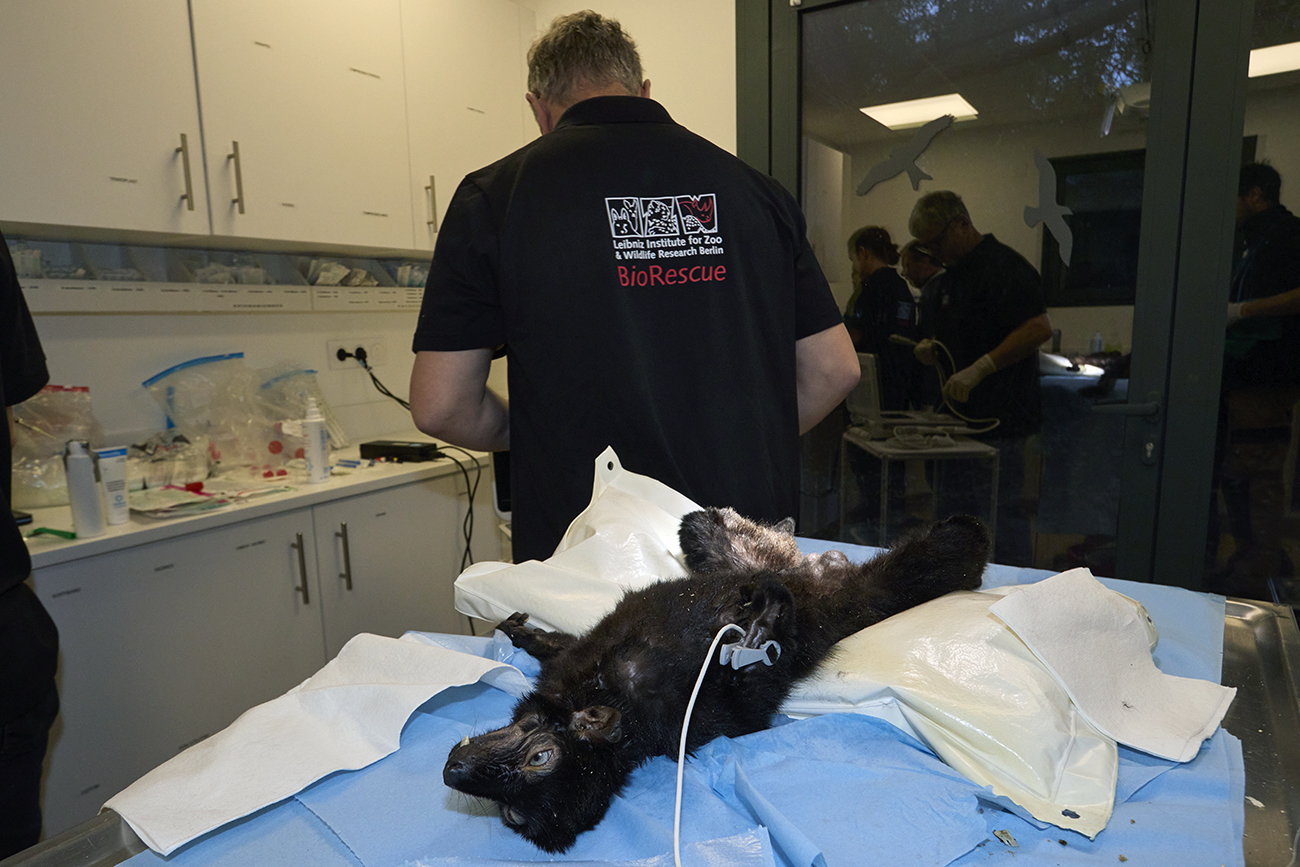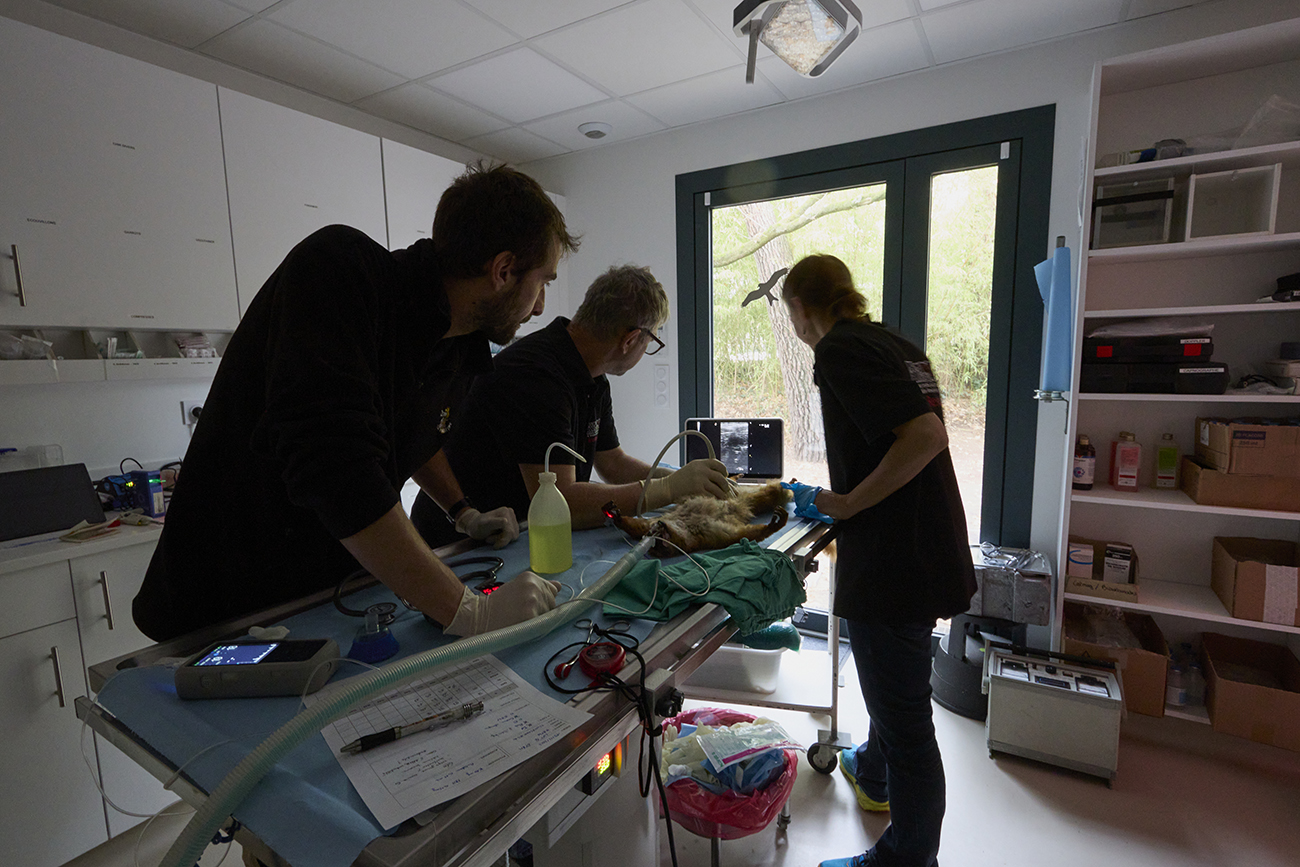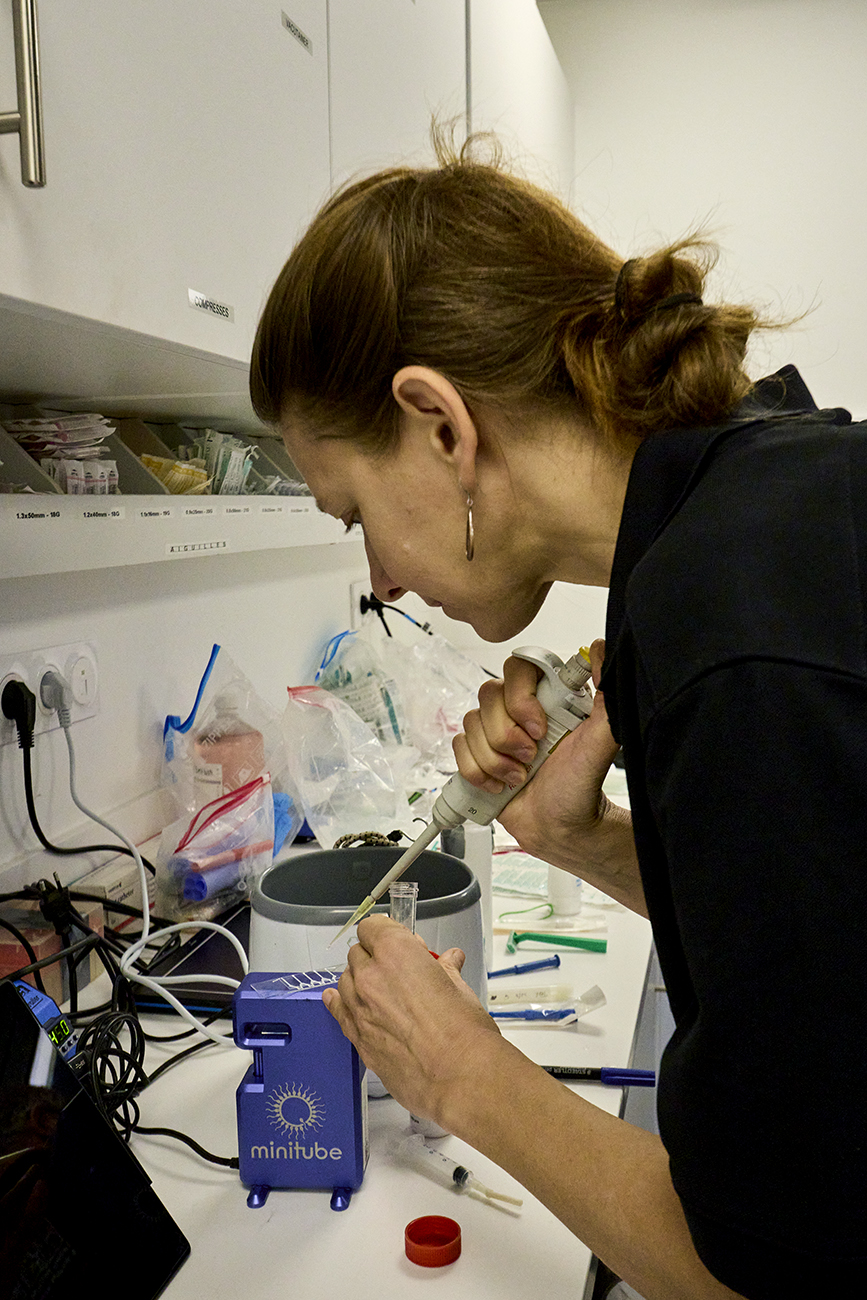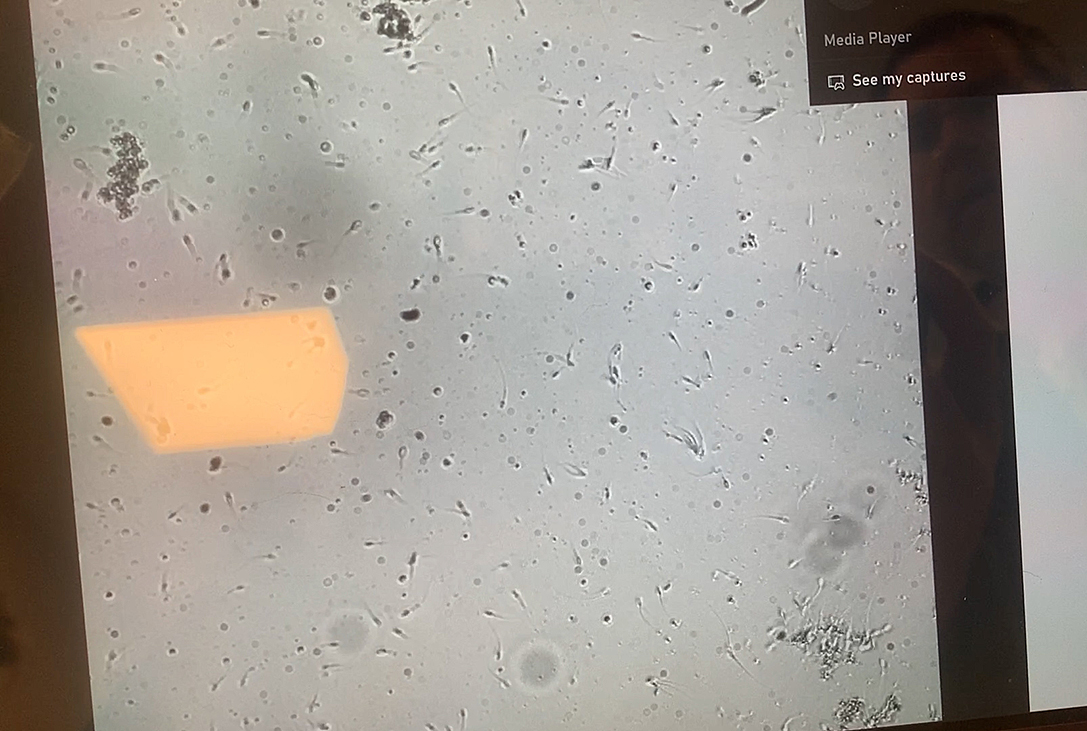Fertily control of the Blue-eyed lemurs

This week we welcomed a team from the Leibniz-IZW*, a research institute located in Berlin and specialized in reproductive biology, who came to help us control the fertility of our blue-eyed lemurs and that of the male housed at Calviac Zoo who was sent to La Palmyre with his keeper on this occasion.

The European Breeding Program (EEP) for the blue-eyed lemur, which gathers only 23 individuals spread across ten European zoological parks, has recorded too few births within the program in recent years. A situation which compromises the long-term survival of this captive population and consequently, its potential role as a source population for possible future reintroductions in Madagascar, the species being classified as Critically Endangered on the UICN Red List. The reasons explaining this low birth rate in the EEP remain not yet identified: are there physiological problems preventing fertilization? Relational difficulties between the animals? A particular sensitivity to disturbance?

The control of the fertility of the individuals, recommended by the EEP, consisted of taking semen samples from the males in order to check the quality of their sperm and carrying out a complete examination of the genitalia of our female. The first results showed that these three individuals are in perfect health and able to reproduce.


Discussions between the parks hosting the species and the EEP will therefore continue in order to define the solutions to be implemented to maximize mating and the pregnancy of females. Several possibilities are being considered, including grouping several individuals in a limited number of institutions in order to allow mate choice, or adjusting the management of the animals during the breeding season to avoid any source of stress in the environment.
*Leibniz Institute for Zoo and Wildlife Research